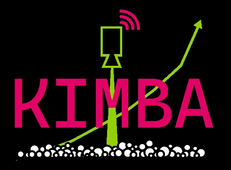
KI-basierte Prozesssteuerung und automatisiertes Qualitätsmanagement im Recycling von Bau- und Abbruchabfällen durch sensorbasiertes Inline-Monitoring von Korngrößenverteilungen
With 587.4 million t/a of aggregates used, the construction industry is one of the most resource-intensive sectors in Germany. By substituting primary aggregates with recycled (RC) aggregates, natural resources are conserved and negative environmental impacts such as greenhouse gas emissions are reduced by up to 85%. So far, RC building materials cover only 12.5 wt% of the aggregate demand with 73.3 million t/a. With an use of 53.9 million t/a (73.5 wt%), their use has so far been limited mainly to underground construction applications. In order to secure and expand the ecological advantages of RC building materials, it is therefore crucial that in future more demanding applications in building construction can also be covered by RC building materials. For this purpose, on the one hand, a sufficient quality of RC building materials must be guaranteed, and on the other hand, the acceptance of the customers must be ensured by a guaranteed compliance with applicable standards for building construction applications. An essential quality criterion for RC building materials is the particle size distribution (PSD) according to DIN 66165-1, which is determined in the state-of-the-art by manual sampling and sieve analyses which is time-consuming and costly. In addition, analysis results are only available with a considerable time delay. Consequently, it is neither possible to react to quality changes at an early stage, nor can treatment processes be parameterized directly to changed material flow properties. This is where the KIMBA project steps in: Instead of time-consuming and costly sampling and sieve analyses, the PSD analysis in construction waste processing plants shall be automated in the future by sensor-based inline monitoring. The RC material produced will be measured inline during the processing stage using imaging sensor technology. Subsequently, deep-learning algorithms segment the measured heap into individual particles, whose grain size is predicted and aggregated to a digital PSD. The sensor-based PSDs are then to be used intelligently to increase the quality and thus acceptance of RC building materials and hence accelerate the transition to a sustainable circular economy. Based on the proof of concept, two applications will be developed and demonstrated on a large scale: An automated quality management system continuously records the PSD of the produced RC product in order to document it to the customers and to be able to intervene in the process at an early stage in case of deviations. An AI-based assistance system is to enable adaptive control of the preparation process on the basis of sensor-based monitored PSDs and machine parameters to enable consistently high product qualities to be produced even in the event of fluctuating input qualities.
Partners
MAV Krefeld GmbH Institut für Anthropogene Stoffkreisläufe (ANTS) Deutsche Forschungszentrum für Künstliche Intelligenz (DFKI) KLEEMANN GmbH Lehrstuhl für International Production Engineering and Management (IPEM) der Universität Siegen Point 8 GmbH vero – Verband der Bau- und Rohstoffindustrie e.V Verband Deutscher Maschinen- und Anlagenbau e.V. (VDMA)
